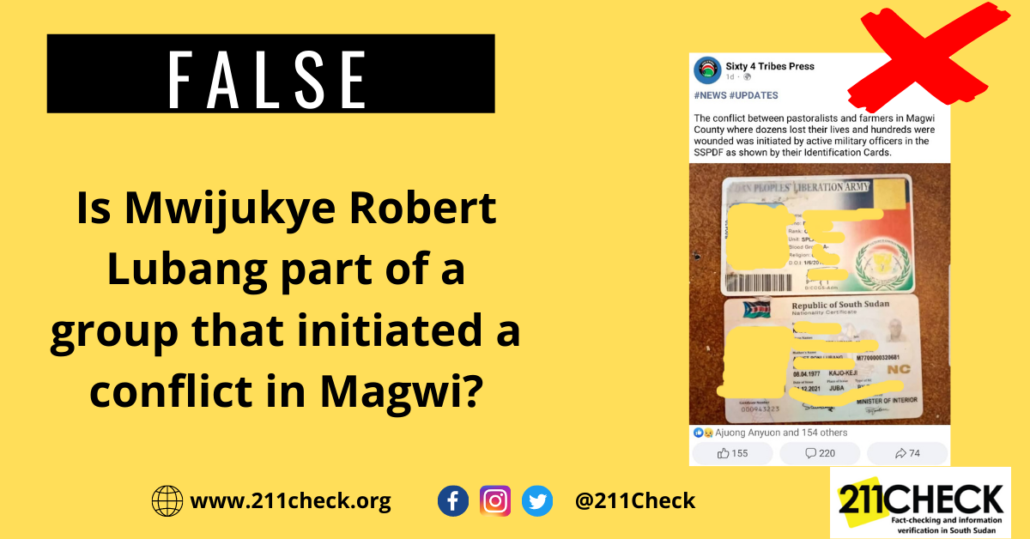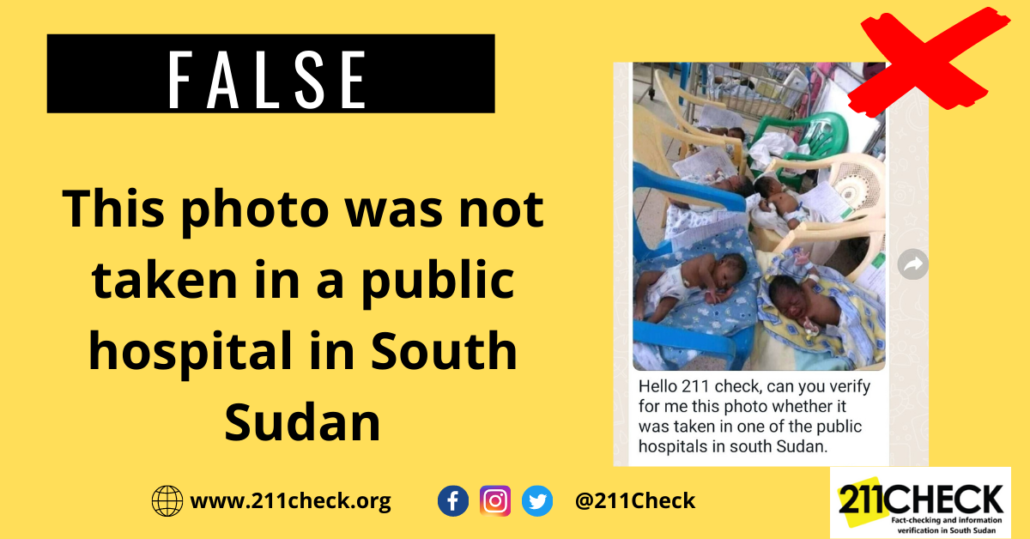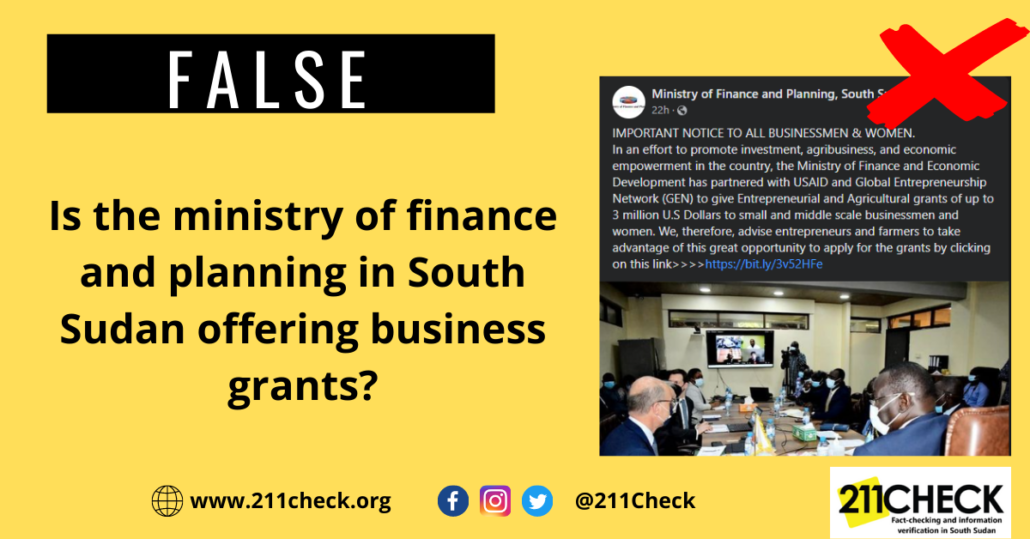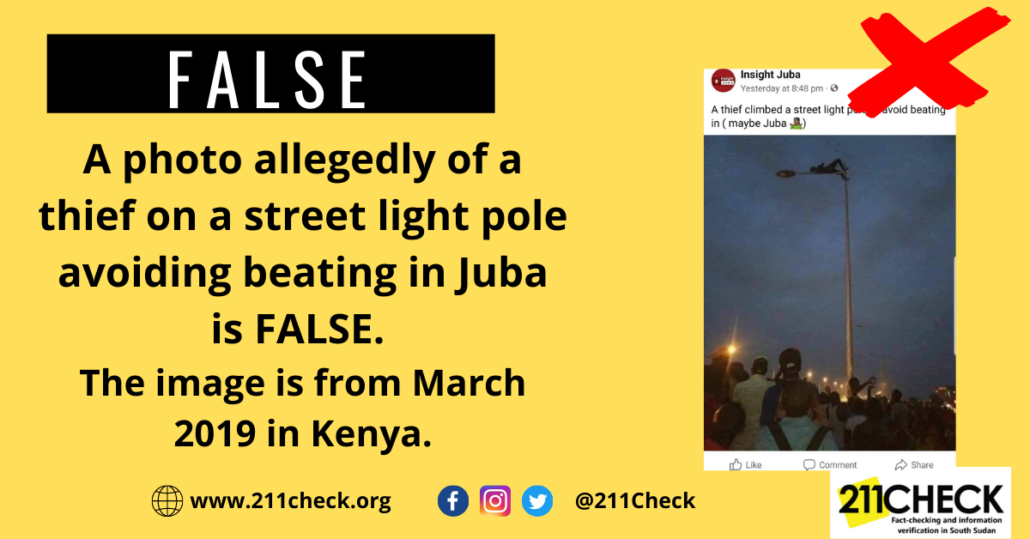Fact-check: MTN South Sudan 40th Anniversary Celebration Gift Raffle is a Hoax
MTN South Sudan is just ten years old, and it marked its 10th anniversary in June 2021. Therefore, do not click and provide your contact address or personal information to suspicious online websites.
Introduction:
A website link widely shared on various WhatsApp groups claiming that MTN customers in South Sudan stand a chance of winning 300 euros through a questionnaire as MTN celebrates its 40th anniversary is false.
While answering the questions on the website, you will encounter questions like:
1. Do you know MTN South Sudan?
2. How old are you?
3. What do you think about MTN South Sudan?
4. And, they also asked if you were male or female?
After going through the four-step questionnaires, a dialogue box with a congratulatory message pops up, “Your answers have been saved successfully. You have a chance to win gifts, and you must select the correct box with your prize inside.” You have three attempts. Good luck”.
Upon selecting the first 2 boxes, it will tell you, “Sorry, the box you have selected is empty. Try again.” You have more chances left, but by clicking on the second row of the first two boxes, it tells you. “Congratulations! You did it! “You won 300 euros.”
And the thump rule: for you to get the money, you must be able to share their promotional messages in five groups and with 20 other friends, as well as complete the registration process with all contact addresses, in order for you to receive the 300 euros in 5-7 days.
However, the promotion is not true, and below are some of our findings which make the promotion false or a hoax.
If you do a close analysis of the website, it directs you to a different website, not the official MTN South Sudan website. The official website for MTN South Sudan is https://mtn.com.ss. The false promotional website is affirmationkidnap.top/ev, which we found to be unrelated to MTN South Sudan.
Additionally, the impostor website is not encrypted, as all legitimate websites start with HTTPS. Therefore, you should desist from such scrupulous links or websites.
Investigation:
MTN South Sudan was established in 2011, right after the independence of South Sudan, with its headquarters located in Hai Jerusalem, Juba-South Sudan. MTN celebrated its 10th year of existence in South Sudan in June last year.
When contacted by 211 Check via WhatsApp for the above promotional prizes. MtnSSD customer centre in South Sudan disputed the prizes and subsequently warned its customers about fake activities/business circulating on social media on behalf of the company’s name.
“No, please be informed that it’s not from MTN.” Keep away from that unreliable information because it’s dangerous. ” “We appreciate you reaching out to us MTNSS,” reads the WhatsApp message from MTN South Sudan.
Another finding using Whois Search indicates that the website was created on May 07, 2022, updated two days later, and it will expire on May 07, 2023, with the website https://ican.org/epp # OK and URL www.west263.com registered in the province of Zhejiang, yet the official website for MTN South Sudan is https://mtn.com.ss.
Lastly, you can click on the link several times and keep winning the 300 euros. This is to lure you to share several times with audiences within your reach for them to achieve their set targets, but ideally, there’s nothing to win.
Conclusion:
211 Check has investigated a claim stating that MTN South Sudan is celebrating its 40th anniversary this year and found it to be a hoax. MTN South Sudan is just ten years old, and it marked its 10th anniversary in June 2021. Therefore, do not click and provide your contact address or personal information to suspicious online websites.











